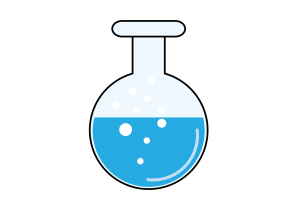Testing and calibration laboratory accreditation requires conformance to the international standard EN ISO/IEC 17025, which defines general requirements for the competence of testing and calibration laboratories. This standards establish both management and technical requirements.
Accredited tests and calibrations guarantee accurate and reliable results for a defined set of tests, and ensure that calibrations are carried out in a reliable, competent, consistent and impartial manner and to the correct degree of accuracy.
In their daily life, consumers depend on reliable analyses and tests such as food product testing (both from food manufacturing companies and catering establishments), environmental testing, water quality testing, testing of electrical appliances and medical diagnostic analyses. Accredited testing laboratories perform such analysis and tests in a reliable and consistent manner.
Measuring instruments of manufacturers and service providers have to be calibrated in order to allow correct measurements. Accredited calibration laboratories execute this task with the required precision and traceability to the International System of Units (SI).
Accreditation of a testing laboratory means:

- validity and appropriateness of test methods
- suitability and maintenance of test equipment
- proper sampling, handling and transportation of test items
- quality control and assurance of test data
Accreditation of a calibration laboratory means:

- metrological traceability of calibration result
- traceability of operations and recordings
- measurements are performed according to validated procedures
- reliability of standards and measurement instruments
What if we are requested to certify our laboratory to ISO 9001?
The Joint ISO-ILAC-IAF Communiqué on the Management Systems Requirements of ISO/IEC 17025:2005, General Requirements for the competence of testing and calibration laboratories, was originally signed on 18 June 2005. The Communiqué was revised in January 2009 to refer to ISO 9001:2008 rather than ISO 9001:2000. This has been revised again in April 2017 to make reference to ISO 9001:2015.
This communiqué’ states the following:
“A laboratory’s fulfillment of the requirements of ISO/IEC 17025 means the laboratory meets both the technical competence requirements and management system requirements that are necessary for it to consistently deliver technically valid test results and calibrations. The management system requirements in ISO/IEC 17025 are written in language relevant to laboratory operations and operate generally in accordance with the principles of ISO 9001.”
It was produced to relieve the confusion caused by the perception that accredited laboratories do not operate a recognised quality management system.
Applying for accreditation

Information on the Accreditation process can be found in the guides section.
Application forms for the accreditation of your laboratory may be found in the downloads section.
Participation in Proficiency Testing

In order to ensure the quality of test and calibration results, the laboratory has to monitor the validity of tests and calibration undertaken. One of the methods to perform this monitoring is by means of participation in interlaboratory comparisons or proficiency testing programmes. For further information regards interlaboratory comparisons and proficiency testing schemes, one may consult the NAB-MALTA policy ATG10 on Proficiency Testing and Interlaboratory Comparisons in the Services section.
Note: All European (EN) and International (ISO, IEC) standards are available for viewing or purchasing from the Standards and Metrology Institute of the Malta Competition and Consumer Affairs Authority.
